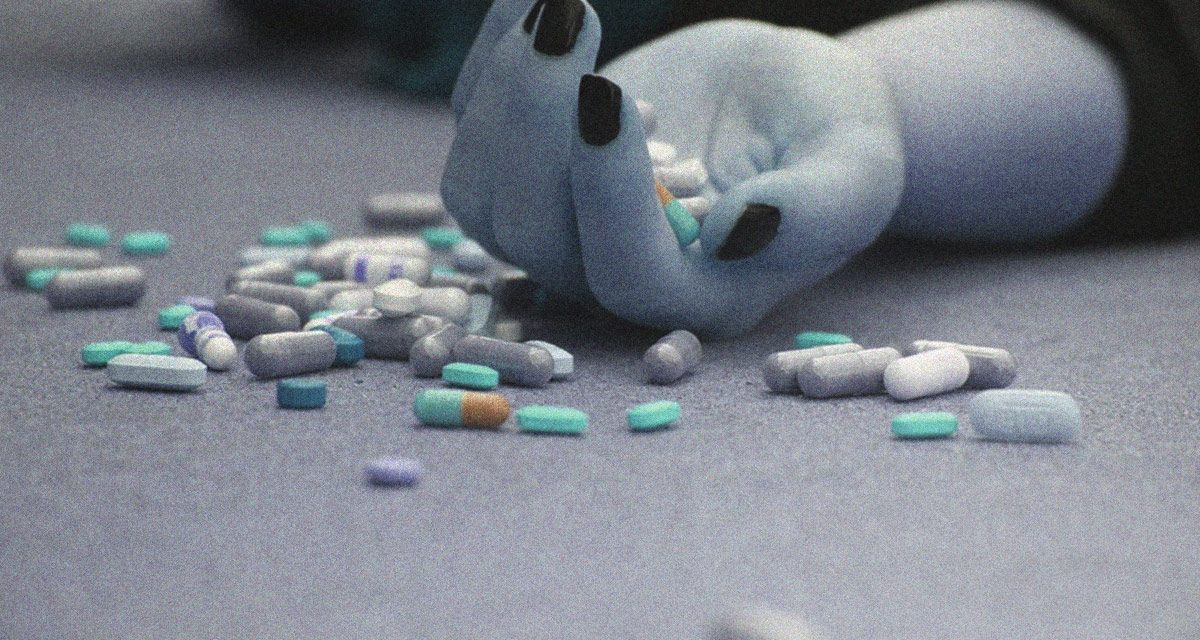- Have any questions? Contact us!
- info@dr-rath-foundation.org

Selection of cancer drugs by doctors linked to payments received from pharma
April 19, 2018
Goldman Sachs questions whether curing patients is a ‘sustainable business model’
April 19, 2018Growing Evidence For The Role Of Nutrition In Psychosis And Schizophrenia

A recent scientific review and meta-analysis of 28 studies has found that psychosis is associated with nutritional deficiencies. Published in the Schizophrenia Bulletin journal by researchers from the UK, Australia and Belgium, the data shows that, compared to non-psychiatric individuals, patients newly diagnosed with psychosis have significant reductions in levels of folate, vitamin D, and vitamin C. Significantly, the researchers observed that patients with the lower levels of these nutrients also had the worst mental health.
The studies examined in the paper involve 1221 patients diagnosed with their first episode of psychosis, as well as 1391 non-psychiatric individuals. Notably, many of the patients experiencing psychotic episodes were found to be dangerously nutritionally deficient, with the strongest evidence being seen in respect of a lack of vitamin D.
Commenting on the findings in the Sydney Morning Herald, lead author Dr. Joseph Firth pointed out that: “Right away, as soon as they are presenting with psychotic symptoms, they have low folate – which is really important for brain health – and low vitamin D, which is also a neuroprotective nutrient.” He added that both of these nutrients are “key factors in people’s mood and energy levels.” In their conclusion to the scientific paper, Dr. Firth and his colleagues state that there is a clear need for clinical trials to evaluate the use of dietary- and nutrient-based interventions in people suffering their first episode of psychosis.
Antipsychotic drugs aren’t the answer
 The Schizophrenia Bulletin review adds to the findings of an earlier meta-analysis published by Dr. Firth and his colleagues, which looked at the use of high-dose B vitamins in schizophrenia and found that they can significantly reduce symptoms of the condition more than standard antipsychotic drug treatments used alone. Published in Psychological Medicine, one of the world’s leading psychology journals, B-vitamin interventions utilizing higher dosages or combining several vitamins were consistently found to be effective in reducing psychiatric symptoms. Lower doses, in contrast, were ineffective.
The Schizophrenia Bulletin review adds to the findings of an earlier meta-analysis published by Dr. Firth and his colleagues, which looked at the use of high-dose B vitamins in schizophrenia and found that they can significantly reduce symptoms of the condition more than standard antipsychotic drug treatments used alone. Published in Psychological Medicine, one of the world’s leading psychology journals, B-vitamin interventions utilizing higher dosages or combining several vitamins were consistently found to be effective in reducing psychiatric symptoms. Lower doses, in contrast, were ineffective.
As Dr. Firth points out in the Sydney Morning Herald, many patients with schizophrenia also experience problems such as social withdrawal, low motivation, and poor cognitive functioning. Antipsychotic drugs, he says, do nothing to improve these symptoms. Instead of increasing patients’ ability to lead a fulfilling life, such drugs can cause unpleasant and even dangerous side effects that often make things worse. It is therefore clear that new approaches are urgently needed in this important medical field.
As with other areas of medicine, however, the principal barrier towards revolutionizing the treatment of mental health disorders is the multinational pharmaceutical industry, for whom the sale of drugs to treat these conditions was worth more than 34 billion dollars globally in 2015. This made such drugs the eighth-highest earning class of pharmaceutical medications that year. Just as with diseases involving physical health problems, therefore, pharma companies see non-patentable natural approaches to controlling mental illness as a direct threat to their business revenues.
But with growing scientific evidence supporting the role of nutrients in preventing and controlling mental health problems, nutritional psychiatry is increasingly seen as offering hope for the future. As many enlightened physicians and researchers working in this pioneering area of medicine now recognize, the better we are able to control mental health problems through the use of safe natural approaches, the faster will be our progress towards a healthier, happier world.



